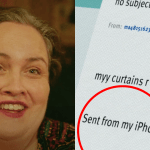
26-year-old journalist and content manager at radio station 3AW Matt Cram has already achieved more in his career than most reporters twice his age. Winning two Walkley Awards for his work on The Border Mail’s ‘Ending The Suicide Silence’ series, Matt did what any Gen Y-er would do: he took to social media to start conversations about a topic that desperately needs to be talked about, not swept under the rug. Using his degree from Melbourne’s La Trobe University, Matt became an integral part in taking the paper’s online presence to a new level. We took five minutes with Matt to discuss social media, mental illness and why Tim Winton infuriates him so.
Could you tell us about the degree you chose to study, and why you chose to complete it at LaTrobe?
I did a Bachelor of Journalism, and chose to do it there because of its coverage across all media.
What’s one lesson you were taught at LaTrobe that has helped you most in your years working as a reporter since?
I keep coming back to the inverted pyramid, especially now that I’m training and managing my own team. Basically, inverted pyramid is a schmancy journalist term for prioritising info in news articles.
What made you want to pursue a career as a journalist and editor?
I loved writing. Journalism seemed my best chance of writing with a regular pay check.
How did you go about gaining the experience necessary to begin your career as a recent graduate?
I worked at street press magazine The Buzz and did a few days of work experience at The Age, where I made some very valuable contacts. Nothing beats industry experience.
What has been the most surreal moment of your career? The most challenging?
The most surreal was winning two Walkley awards in 2012. The most challenging moments are when people attack your integrity because they don’t like what you’ve written.
What’s the most rewarding aspect of your career?
Everyone gets a different kick out of their role in the media, because it’s such a diverse industry. For some people the biggest motivation is the pursuit of truth. Some people want to make social change. Some just like the spotlight. I love the challenge of informing and entertaining audiences by grabbing their attention and not letting go.
Where do you envisage yourself in ten years’ time?
Probably still trying to grab an audience’s attention, whether it be in the news media, in a book, on a stage, wherever.
What’s the most significant change you’ve witnessed in the Albury Wodonga community in the year since launching the Ending The Suicide Silence campaign?
People started talking.
Social media, especially the Ending The Suicide Silence campaign Facebook page, played a huge role in securing plans for a Headspace Centre on the Border. Do you think social media is a help or a hindrance to young people when it comes to addressing mental health issues?
It’s both. But social media is here and it ain’t going away, so it’s a bit of a moot point. What we need to ask is how can SM best help, and how can harm be minimised? Educating parents is the key, because so many of us early SM users grew up with parents with no idea about SM or it’s power, and left us to our own devices.
Firstly, there’s no one-size-fits-all fix. People deal with mental illness differently, just as we all deal with joy, grief, stress, etc. differently. That said, a lot of people who would benefit from talking about mental health don’t have the confidence or support to do so because society’s default response is often to hide it. That’s what our series ‘Ending The Suicide Silence’ was about; kickstarting conversations.
The Border Mail have fostered some promising young talent (especially this year’s Young Australian Journalist Of The Year, Ashley Argoon). What advice would you give to a prospective student and/or journalist who aspires to a career in print and online media?
Take all opportunities, and always look to create new ones. Also be aware that who you know is almost as important as what you know – like it or not.
What are your three favourite pieces of writing? (fiction, non-fiction, journalism – anything!)
Ugh. Impossible! OK, right now I’m thinking…
- Cloudstreet: Tim Winton infuriates me because his writing is so evocative and powerful and I have no idea how to replicate it.
- Mad Men: This show is full of essentially horrible people who we empathise with and even cheer for because of the power of great writing.
- Tigers in 2012: Because I wanted to highlight sport writing, and Martin Flanagan is a master (not only of sport, mind you). No news here, just words that make you smile and love footy.
Photo via Getty Images



